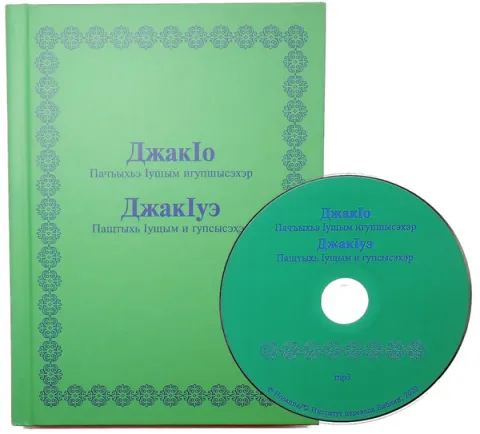IBT is happy to announce the release of a bilingual edition of Ecclesiastes in Adyghe and Kabardian, closely-related languages of the North Caucasus in the Russian Federation.
First, a little history. The official classification of Adyghe and Kabardian as separate languages appeared in 1922, when the Adyghe (Cherkess) and Karachay-Cherkess autonomous regions were formed inside the USSR. Until that time, the two languages were considered to be dialects of a single Circassian language. Over the past century, Adyghe and Kabardian have each developed independently (especially in their written forms), but some speakers of Adyghe and Kabardian still feel that they belong to the same language community. The Ecclesiastes publication was born out of a desire to preserve and develop the community between these two peoples.
The members of IBT’s translation teams in Adyghe and Kabardian worked with each other closely to produce this publication. The two translators frequently consulted with each other in search of the best translation options for their respective languages, trying to bring vocabulary for basic concepts closer when possible. The two exegetical advisors developed a unified exegesis of the text, worked out common key terms, and ensured that footnotes would coincide in both translations.
Ecclesiastes was selected for this project because a key theme of the book is the search for the meaning of life. The elderly author, having acquired all human wisdom, reflects on the meaninglessness of life without God. The Kabardian translator says, “This is a book of wisdom and teaching. It shows man facing a choice from God. He is free to decide for himself how to live and what to choose. That lesson is why we selected this book.”
The translators’ deep knowledge of local folklore was of great help to the project, as was their already significant experience in translating other Old Testament books: Proverbs, Ruth, Daniel, Jonah, and several other books have already been published in Adyghe and Kabardian.
In the bilingual edition, the two translations are arranged one after the other, with a glossary of biblical terms and a topical index at the end of each translation. A CD containing audio recordings of both translations will be included with the book. The audio recordings were made by native speakers in the cities of Maikop and Nalchik.
You can find the PDF of this publication and listen to the audio recordings on the Adyghe and Kabardian project pages of the IBT website.

